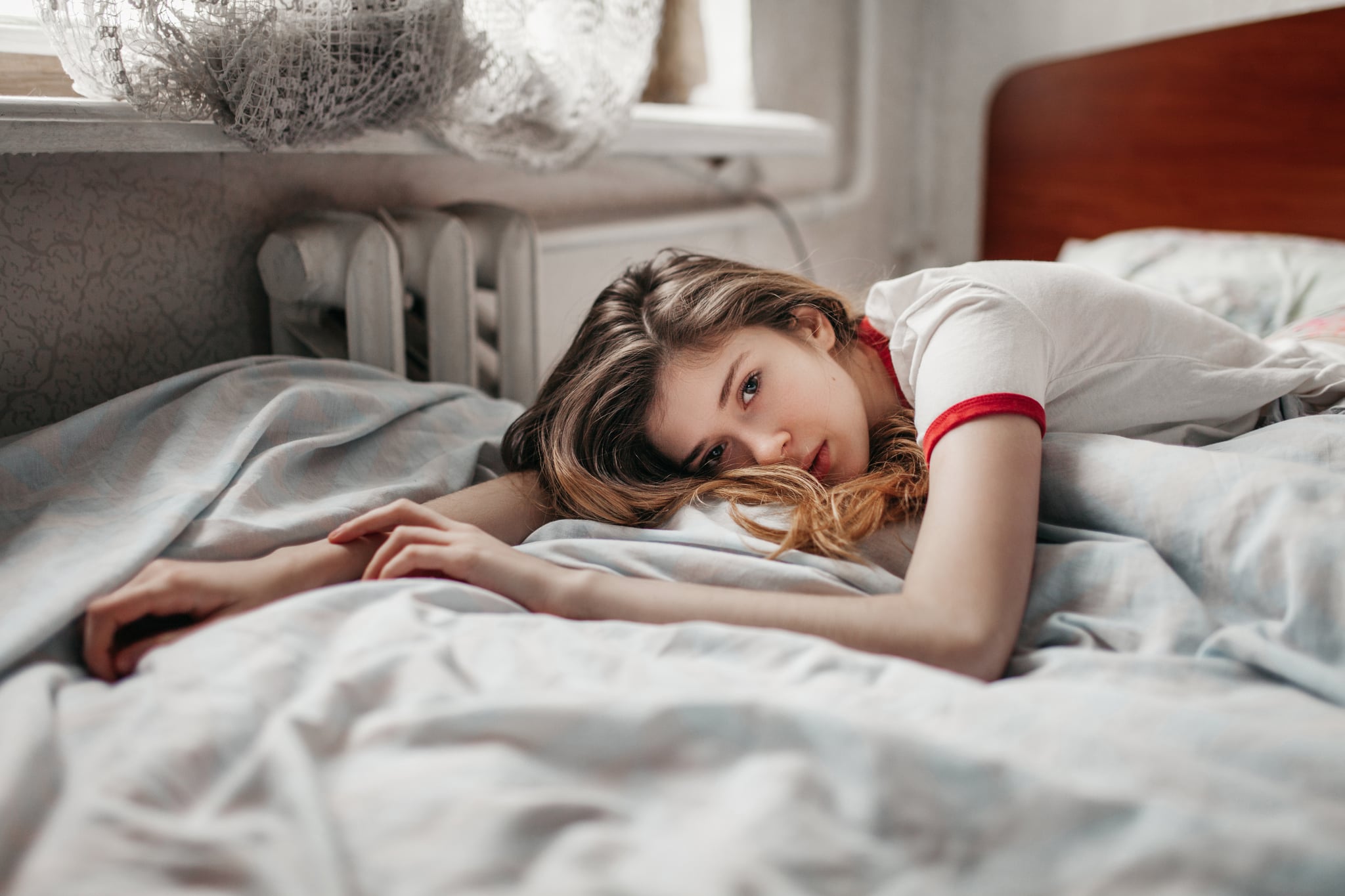Why Do I Sleep Worse on My Period?
If You Sleep Worse on Your Period, a Doctor Says This Might Be Why — and How to Fix It

Do you ever feel like your period disrupts every part of your life, right down to your sleep cycle? Many women complain of poor sleep on their period, and it's no surprise — your hormones are all over the place, and sleeping with debilitating cramps is no easy feat either. You might think it's just you, but in fact there are some concrete scientific reasons behind why your shut-eye goes haywire when you're on your period. In fact, as Kin Yuen, MD, a sleep medicine doctor at the UCSF Sleep Disorders Centre, told POPSUGAR, "your menstrual cycle actually matters a lot in terms of how well you tend to sleep."
- Estrogen and progesterone are low. Hormones play a big role to in your sleep cycle, so when they fluctuate — as happens naturally around your period — the quality of your sleep does too. "Estrogen interacts with sleep in a way that, when the levels are low (particularly within the first couple of days of your menstrual cycle), we tend not to sleep as well," Dr. Yuen told POPSUGAR. The hormone progesterone also dips at the start of your cycle and exacerbates this sleep disruption even more.
- Serotonin levels drop. The effect of estrogen on the mood-regulating chemical serotonin isn't completely understood, Dr. Yuen said, but it's clear that when estrogen is low, so is serotonin. When estrogen drops at the start of your period, so does serotonin, which brings down your mood and can disrupt your sleep.
- Your airways are constricted. "Our airways can become a little bit smaller within the first few days of our menstrual cycle, up to maybe a week in," Dr. Yuen said. For people that have pre-existing breathing problems, such as sleep apnea or asthma, that can make falling and staying asleep even more difficult.
- Your body temperature spikes. "When we have fluctuating levels of estrogen and progesterone, the body's temperature regulation gets of out of whack," Dr. Yuen told POPSUGAR. That can lead to higher body temperatures — again, especially in the first days of your period — which make it hard to fall asleep.
No one wants to deal with poor sleep or, in more extreme cases, insomnia; it leaves you sluggish, exhausted, and more susceptible to weight gain and high blood pressure, along with a host of other scary side effects. When you're on your period, it gets even less fun. Sleep deprivation increases your sensitivity to pain, which can make cramps hurt even more — and, in one of those great endless cycles, bad cramps can turn around and make it even harder to get good sleep. (Here are some quick tricks for soothing cramps.)
So what can you do to make it more manageable? Contraceptives or hormone replacements are one way to even out sleep on your period, particularly those that contain progestin (the manufactured form of progesterone). "When progesterone levels are a little bit higher, we sleep better," Dr. Yuen said. Birth control is classified as either progestin-only or "combination," meaning it contains both estrogen and progestin. Talk to your ob-gyn about which option is right for you, and make sure to mention that you're trying to improve your sleep.
You can also lower the temperature in your room (or use a cooling weighted blanket for an extra soothing effect) and avoid eating heavy, fatty foods before bed, as they can lead to digestive discomfort and make poor sleep even worse. See our top sleep tips for more ideas on getting better shut-eye during your period and all the time.







